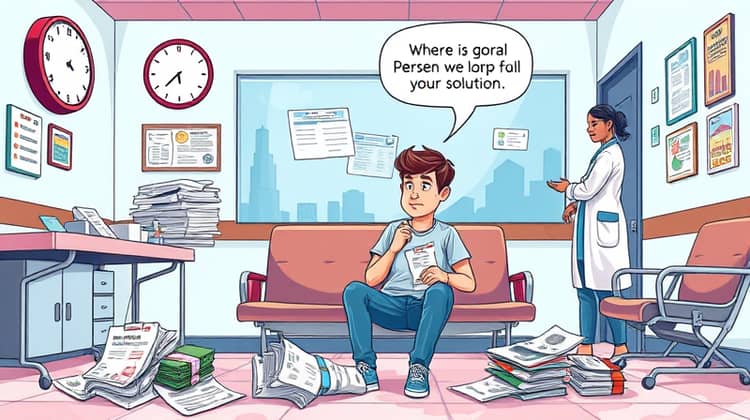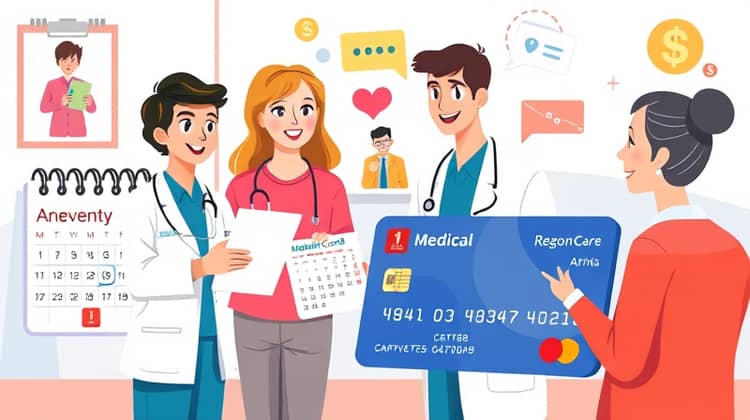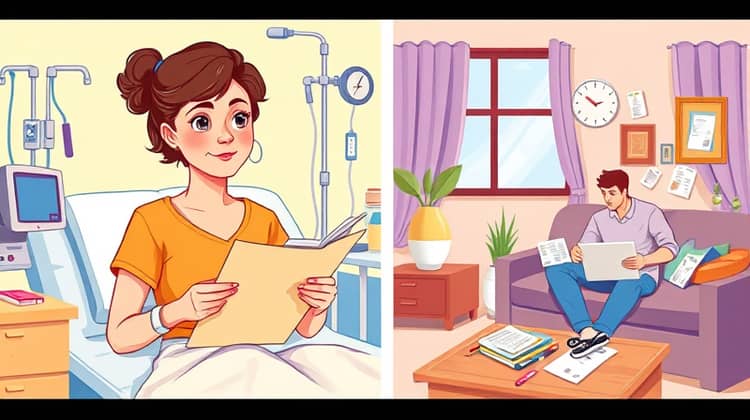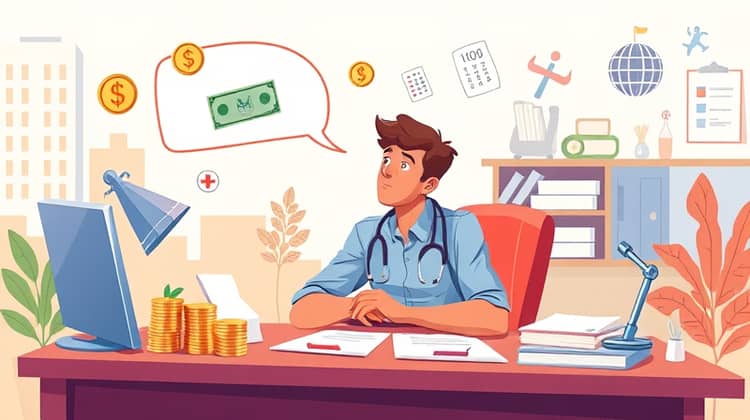In today's fast-paced world, unexpected medical expenses can create significant financial strain on individuals and families. While health insurance can cover many medical treatments, it often falls short, leaving patients to shoulder a considerable debt burden.
Personal loans have emerged as a viable option for covering medical expenses, providing individuals with the funds needed to manage their healthcare costs efficiently. This article explores personal loans for medical expenses, outlining their pros and cons, the application process, and real-life scenarios, to help you make informed decisions about financing your healthcare needs.
Understanding Personal Loans

Personal loans are unsecured loans that can be used for various purposes, including medical expenses. Unlike secured loans that require collateral, personal loans rely on the borrower's creditworthiness to determine eligibility and loan amounts.
These loans typically feature fixed interest rates and set repayment terms, often ranging from one to five years. This structure makes them a popular choice for those seeking predictable monthly payments while managing their debt.
Before applying for a personal loan, it's essential to understand how they work, evaluate your financial situation, and assess whether taking on additional debt is the appropriate solution for your medical expenses.
- Unsecured: No collateral is necessary, which reduces the risk for borrowers.
- Quick funding: Many lenders provide same-day or next-day funding, making it convenient for urgent medical needs.
- Fixed payments: Borrowers can expect the same monthly payment throughout the loan term, aiding in budget management.
Overall, personal loans can be a helpful financial tool for those facing medical expenses. However, assessing your financial health and repayment capability is crucial before making a decision.
Why Consider a Personal Loan for Medical Expenses?

Medical expenses can arise unexpectedly, and when they do, individuals may require immediate financial assistance. Personal loans offer a quick solution for those who cannot wait for insurance reimbursements or lack immediate cash reserves.
Furthermore, personal loans often come with lower interest rates than credit cards, making them a more cost-effective option for financing medical costs. This can be especially beneficial for larger medical expenses that may require substantial upfront payments.
Pros and Cons

- Lower interest rates compared to credit cards, making them financially advantageous.
- Flexible amounts: Borrowers can request loan amounts tailored to their specific medical expenses.
- Streamlined application processes with many lenders offering online assistance.
- Risk of debt accumulation: If not managed properly, personal loans can contribute to financial strain.
- Potential impact on credit score: Applying for a personal loan can temporarily lower your credit score due to hard inquiries.
- Not ideal for chronic conditions: For ongoing treatments, personal loans may not offer sustainable financial solutions.
Given these pros and cons, individuals considering a personal loan for medical expenses must carefully evaluate their financial situation and options.
How to Apply for a Personal Loan

Applying for a personal loan is generally straightforward, but it requires organized preparation to ensure the best chances of approval. It's important to review your credit score and financial history beforehand, as these will influence your eligibility and interest rates.
Once you have an understanding of your financial position, research lenders to find the best rates, terms, and customer reviews to facilitate your application process.
- Gather necessary documents including proof of income, identification, and details of your medical expenses.
- Compare offers from multiple lenders, focusing on interest rates and repayment terms that suit your financial situation.
- Complete the application process, ensuring all information is accurate and complete to avoid delays.
After submitting your application, lenders will typically review your credit history and financial standing before making a decision. Approved loans can often be funded quickly, assisting you with your medical expenses in a timely manner.
Alternatives to Personal Loans

While personal loans can be a good option for some, several alternatives exist that may better suit certain situations. Exploring these can help minimize your debt burden and provide more financial flexibility.
Options like payment plans offered by healthcare providers, medical credit cards, or assistance programs may offer more appropriate or less expensive funding solutions for your medical expenses.
- Healthcare payment plans: Many providers offer short-term payment plans, allowing patients to pay off medical bills over time without incurring interests.
- Medical credit cards (e.g., CareCredit): Specifically designed for healthcare expenses and often come with attractive financing options.
- Negotiate medical bills: Contacting providers for potential discounts or sliding scale fees based on income can alleviate costs.
Understanding these alternatives can empower individuals to make informed decisions about financing medical bills without the constraints of personal loans.
Real-Life Scenarios

To illustrate the importance of personal loans for medical expenses, consider real-life scenarios where these loans can effectively assist individuals in need.
Case Study 1: Unplanned Surgery
A young mother, facing an unplanned surgery due to a sudden health issue, found herself confronted with unexpected medical bills. Her health plan was insufficient to cover the total cost, prompting her to explore personal loans as a solution for immediate financial assistance.
Case Study 2: Ongoing Treatments
An individual with a chronic medical condition faced ongoing treatment costs that escalated quickly. Having limited income, they opted for a personal loan to cover the initial expenses, planning to use it as a buffer while they secured help from charity organizations for future bills.
Tips for Managing Medical Debt

Managing medical debt effectively requires proactive planning and strategic budgeting. Start by tracking all medical expenses and establish a repayment plan based on your income and other financial obligations.
Moreover, keeping open communication with healthcare providers about your financial situation can enable you to negotiate more manageable payment arrangements.
Conclusion

Personal loans can serve as a crucial tool for covering medical expenses, particularly when unexpected events arise. While they offer quick access to funds, it's vital to weigh their pros and cons against personal financial health and long-term implications.
Exploring alternatives and staying informed about managing medical debt can further empower individuals, enabling them to navigate their healthcare costs more sustainably and with greater confidence.














